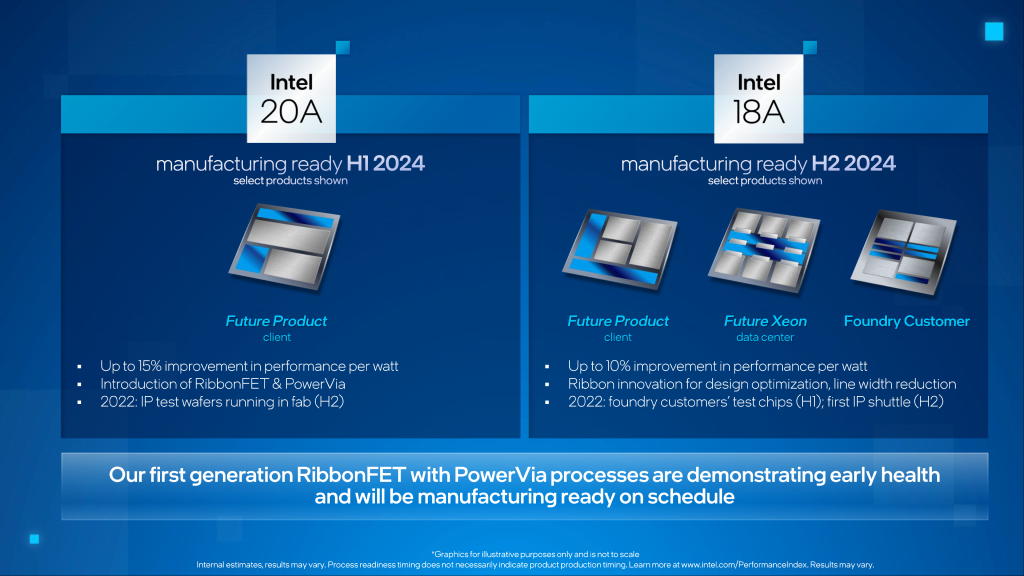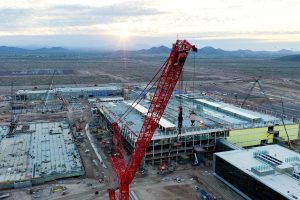Intel says its 18A process – its version of 2nm – will be ‘manufacturing ready’ in H2 2024 and be in production in 2025.
18A will be Intel’s second process using GAA transistors – they will come in at the 20A node which is running about six months ahead of 18A.
TSMC said in April it would be in production of its first generation of GAA on 2nm in 2025 – but TechNews has now raised doubts over that.
Intel’s 20A and 18A will use backside Power Delivery which TSMC won’t use in its first version of the 2nm node but will be used in TSMC’s second version of 2nm.
This also gives Intel a helping hand to delivering what CEO Pat Gelsinger claimed in March – that it’s “on track to regain transistor performance and power performance leadership by 2025.”

The TechNews report sources the story of the TSMC delay from the contractors preparing buildings for TSMC’s 2nm facilities. It says construction on a key plant has slowed to such an extent that the company will be postponing 2nm production until 2026.
“The GAA node, was always going to be a challenge,” Malcolm Penn, CEO of analysts Future Horizons told IFS2023 earlier this month, “it keeps getting pushed out – it’s now into 2024/2025. Taking it into a production environment using techniques which have never been used before is a tremendous challenge. It’s an open race, no clear winner has been established. Whoever wins that race has got the next 10 years.“
Samsung says it started running 3nm GAA chips in June last year but it does not seem to have been successful and a second generation process is now being used.
However last May, Dr. Kye Hyun Kyung, the head of Samsung Electronics’ Device Solutions Division, who is in charge of the company’s Memory, System LSI and Foundry business units, told the Korea Advanced Institute of Science & Technology (KAIST): “To be honest, Samsung Electronics’ foundry technology lags behind TSMC. We can outperform TSMC within five years.”
 Electronics Weekly Electronics Design & Components Tech News
Electronics Weekly Electronics Design & Components Tech News



